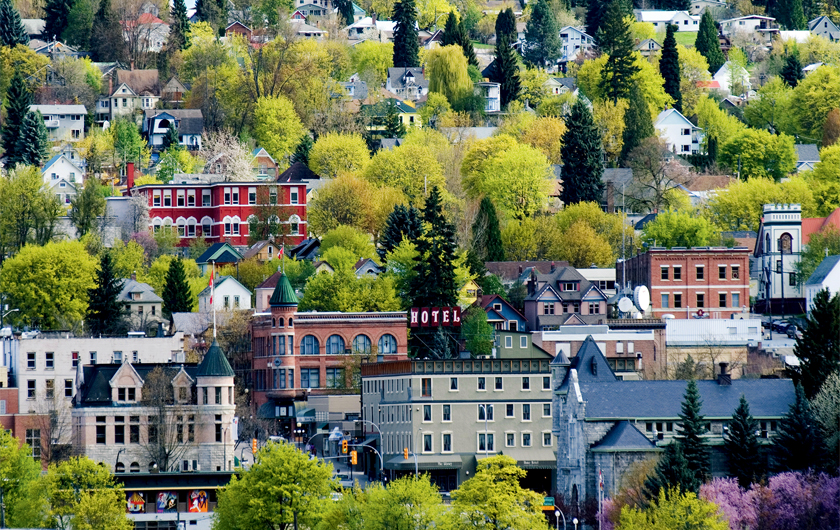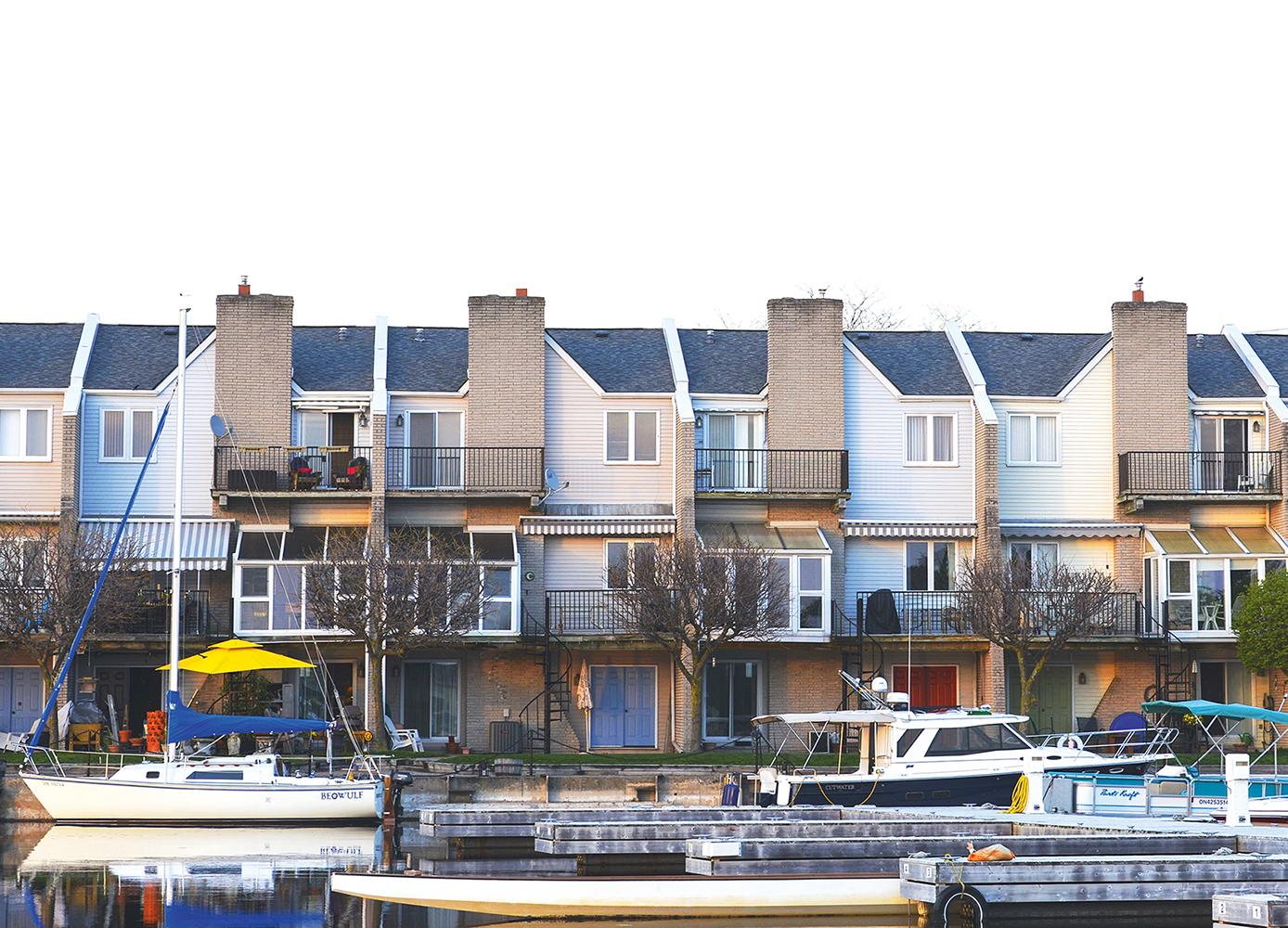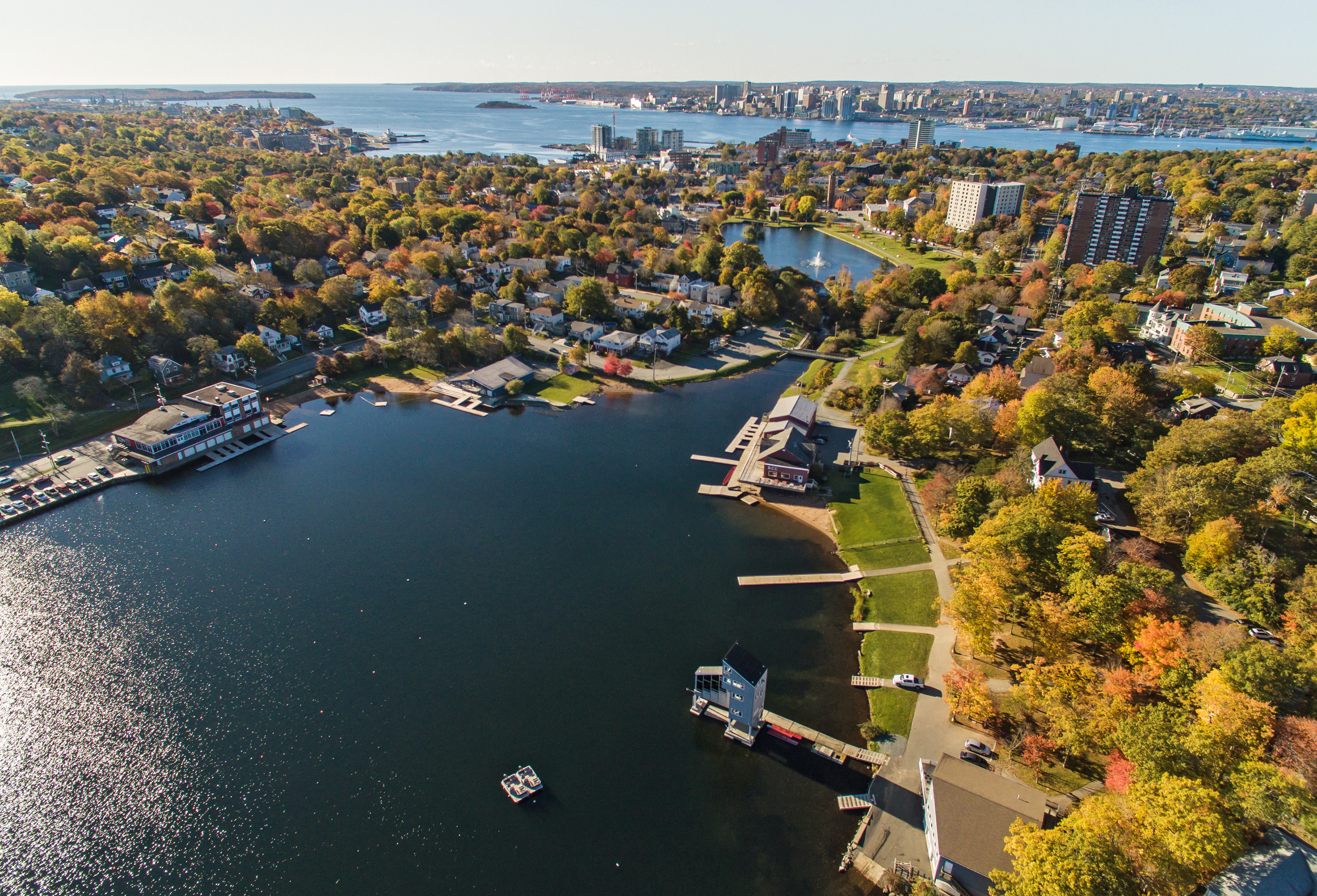Nestled by a lake in the Selkirk Mountains, Nelson is the “Queen City of the Kootenays”
By Wendy Haaf
Photo: Discover Nelson.
It’s not just the stunning surrounding scenery and the heritage buildings from a historic silver-mining boom that make Nelson, BC, unique. Look past the physical beauty of the thickly forested slopes of the Selkirk Mountains and the aquamarine waters of Kootenay Lake and you’ll begin to sense what sets this city of 10,000 apart. For example, chain stores and fast-food outlets are rare, independently owned shops carry wares handcrafted by local artisans, and three community college campuses represent just a sampling of the opportunities for lifelong learning and connection.
That’s not to minimize the area’s incredible geographic gifts, however, which make Nelson an outdoor playground for hiking, canoeing, kayaking, sailing, fishing, climbing, and snowshoeing. “What appeals to me most is that I can be in the wilderness within 20 minutes,” says long-time resident Pat Gibson. “I can be riding a bike or I can be down by the lake.”
You can even get a workout walking Nelson’s steeper streets, since the city is perched on a mountainside. Venues for both downhill and cross-country skiing lie within an hour’s drive, as do three provincial parks with varied landscapes suitable for mountain and alpine scrambling, rugged mountain biking, and caving. From a forested campground just outside town and three area golf courses to city parks boasting beaches, promenades, gardens, and sporting fields, there’s a nearly endless variety of places in which to relish the open space and fresh air. (This closeness to wilderness, however, has also meant proximity to forest fires for a month of each of the last three summers. And some winter days are dark due to fog that periodically blankets the valley.)
Equally captivating, however, is the character of Nelson’s eclectic population—an open, accepting bunch who value the environment, entrepreneurship, arts and culture, self-betterment, local history, and community involvement.
For instance, Nelson is home to a first-of-its-kind-in-Canada community solar power project—instead of installing individual solar panels of their own, subscribers draw clean energy from a communal solar-panel installation—and organic and locally raised foods are available at the co-op and at three summertime farmers’ markets. A deliberate ban on big box outlets and fast-food franchises helps local shops and restaurants flourish.
“People are very supportive of local merchants,” says Kathy Hrabluk, who, with her husband, Ken Nelson, moved to Nelson from Phoenix, Arizona, in 2017. In addition, the city has an enviable selection of eating establishments, which are, she says, “incredible.”
Volunteer opportunities abound at organizations including food cupboards, the Columbia Basin Alliance for Literacy (which offers, among other things, personalized tech support for seniors), and the Nelson and District Seniors Coordinating Society (which delivers a host of services, ranging from a once-weekly scheduled bus pickup from the city’s four grocery stores to elder abuse awareness workshops and—for those with lower incomes—free tax-return preparation and the coordination of reduced-cost dental care). The latter group also has a volunteer driver program, “and we have already succeeded in increasing the bus service, which is pretty good for a rural area,” says Pegasis McGauley, the group’s chair.
On the arts and culture front, there’s always something happening, whether it’s a new exhibit at Touchstones Nelson Museum of Art and History, a performance at the state-of-the-art Oxygen Art Centre, a concert at the Capitol Theatre (a former movie theatre restored to its 1920s glory), a book signing at the library, or an author’s reading at the annual literary festival. “You can choose among numerous venues for live music, and there are Juno Award-winning recording artists who pass through Nelson,” Hrabluk says. With one of the country’s highest per capita concentrations of artists and artisans (some of whom are drawn there by programs in disciplines such as pottery, jewellery-making, metalwork, and blacksmithing offered at Selkirk College) and an unusually large and dynamic community of writers, “there’s a very creative energy here,” Hrabluk says.
If you’re seeking intellectual stimulation, want to learn a new skill, or would simply like to socialize, you can participate in one of a smorgasbord of classes, groups, and events offered by the group Learning in Retirement, which centres on activities ranging from painting, poetry, and bookbinding to hiking and water aerobics. (Nelson’s multi-purpose recreation centre has numerous amenities including a pool, arena, and fitness centre.)
“Right now, I’m taking art and snooker,” says Sheila Kerr, who joined the organization after moving to Nelson from Calgary eight years ago and is now on the board and programming committee. Weekly lectures and seminars, such as a recent presentation on story structure by a prominent CBC documentarian, are also a big draw. For Kerr, the atmosphere has been a boon. “I wanted to be around people who had ideas, were doing things, and were engaged,” she says.
Of course, any community has drawbacks, which in Nelson’s case, include a scarcity of available real estate and the need to travel to Trail (an hour away) for medical care that’s beyond the scope of the small local hospital (though the community does have excellent residential care facilities). In addition, Kerr says, “we’re short of doctors, just like everybody else,” although that’s often surmountable, either via local connections or by going to a nearby community, such as Castlegar (40 minutes away).
On balance, it’s a blend that couldn’t suit her—or even Kathy Hrabluk and husband Ken Nelson—any better. “I love it!” Kerr says.






